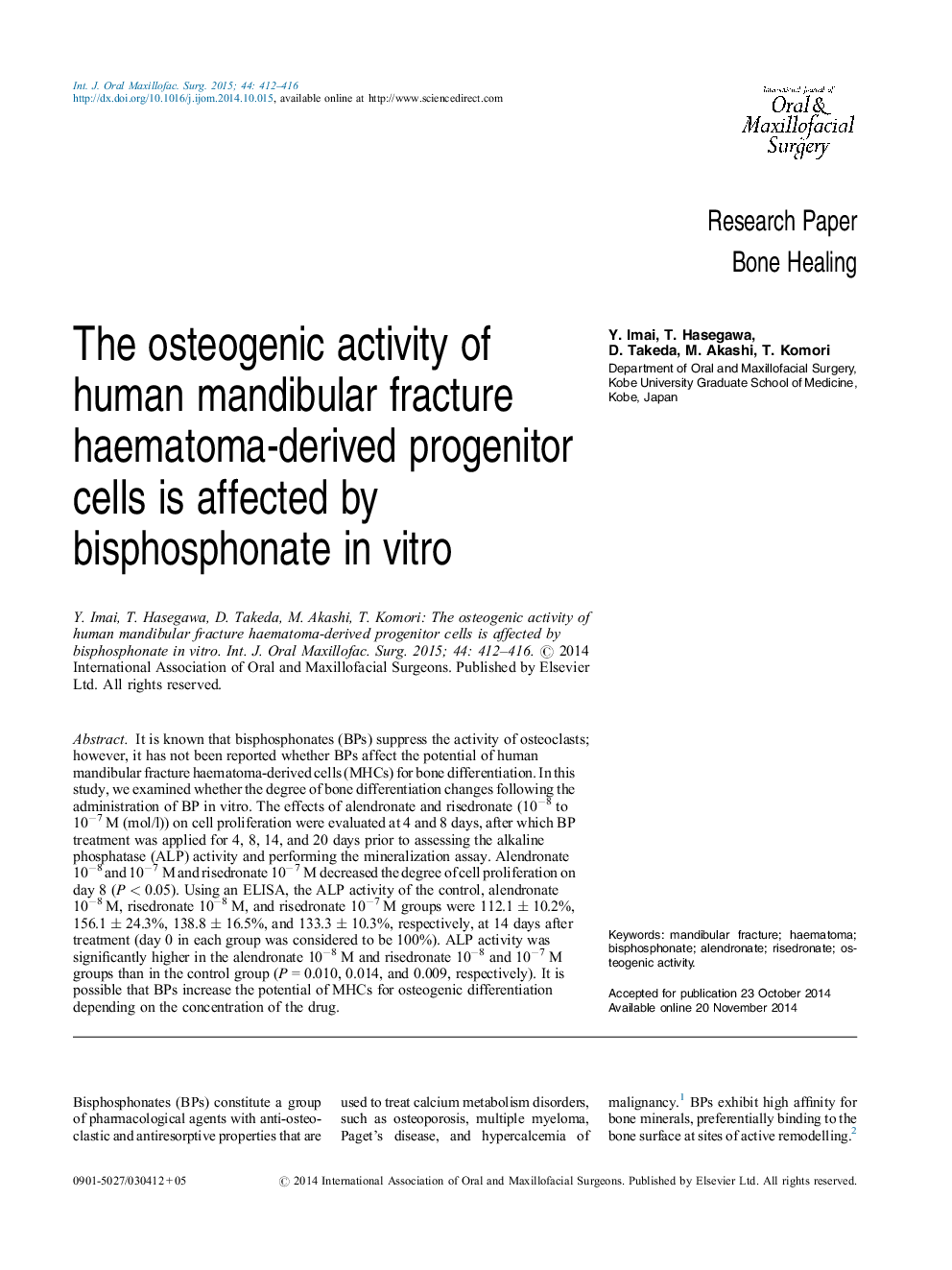| کد مقاله | کد نشریه | سال انتشار | مقاله انگلیسی | نسخه تمام متن |
|---|---|---|---|---|
| 3132205 | 1584131 | 2015 | 5 صفحه PDF | دانلود رایگان |
It is known that bisphosphonates (BPs) suppress the activity of osteoclasts; however, it has not been reported whether BPs affect the potential of human mandibular fracture haematoma-derived cells (MHCs) for bone differentiation. In this study, we examined whether the degree of bone differentiation changes following the administration of BP in vitro. The effects of alendronate and risedronate (10−8 to 10−7 M (mol/l)) on cell proliferation were evaluated at 4 and 8 days, after which BP treatment was applied for 4, 8, 14, and 20 days prior to assessing the alkaline phosphatase (ALP) activity and performing the mineralization assay. Alendronate 10−8 and 10−7 M and risedronate 10−7 M decreased the degree of cell proliferation on day 8 (P < 0.05). Using an ELISA, the ALP activity of the control, alendronate 10−8 M, risedronate 10−8 M, and risedronate 10−7 M groups were 112.1 ± 10.2%, 156.1 ± 24.3%, 138.8 ± 16.5%, and 133.3 ± 10.3%, respectively, at 14 days after treatment (day 0 in each group was considered to be 100%). ALP activity was significantly higher in the alendronate 10−8 M and risedronate 10−8 and 10−7 M groups than in the control group (P = 0.010, 0.014, and 0.009, respectively). It is possible that BPs increase the potential of MHCs for osteogenic differentiation depending on the concentration of the drug.
Journal: International Journal of Oral and Maxillofacial Surgery - Volume 44, Issue 3, March 2015, Pages 412–416
